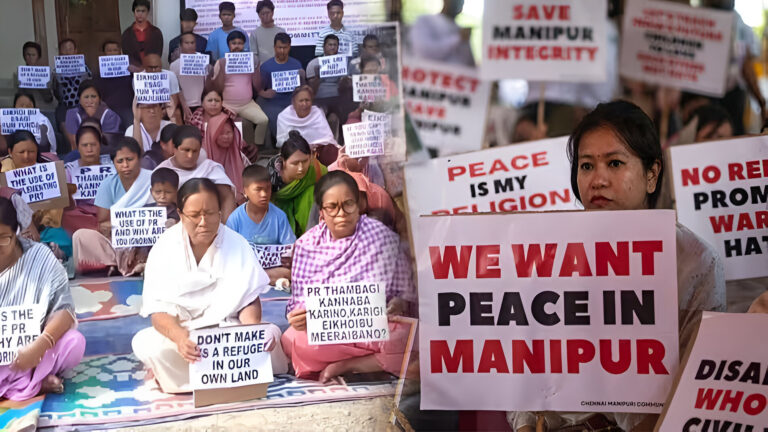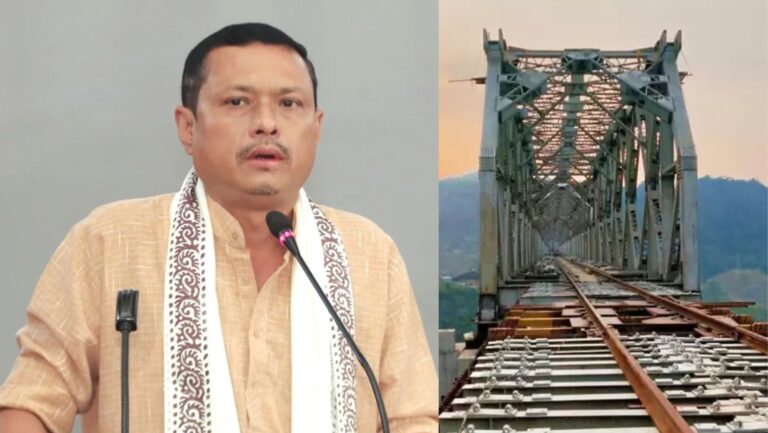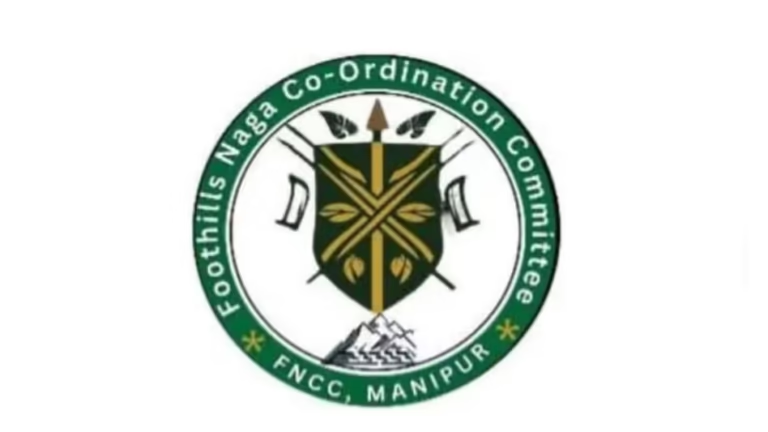NPP National Team Arrives in Imphal Amid Buzz of Withdrawal Support from Biren Government
Summary
The National People’s Party (NPP) national team, led by James Sangma, has arrived in Imphal, fueling speculation of the party considering withdrawing its support for Manipur’s Biren Singh government. The visit comes amid growing political tension and reports of internal party discussions. The NPP, a key ally in the state government, could potentially alter the political landscape if it decides to part ways. This move has drawn considerable attention from political observers.
NPP’s Arrival in Imphal: Political Shifts in Manipur on the Horizon?
Politics is never static, and this is especially true in the dynamic landscape of Indian politics, particularly in states like Manipur. The recent arrival of the National People’s Party (NPP) national team, led by James Sangma, has sparked widespread speculation about potential political shifts. This visit comes at a time when rumors abound regarding the NPP’s possible withdrawal of support from the current government led by Chief Minister N. Biren Singh. So, what does this mean for Manipur, and why is everyone suddenly so focused on this seemingly routine political visit?
Why Is This Visit Significant?
Manipur’s political scene has always been full of twists and turns, but the presence of the NPP in Imphal carries particular weight this time. For those unfamiliar with Manipur’s political framework, the NPP is a critical player in the coalition that supports the Bharatiya Janata Party (BJP)-led government under Chief Minister N. Biren Singh. Now, if the NPP pulls the plug on this alliance, the entire state government could be plunged into uncertainty.
The Coalition: A Delicate Balance
Manipur’s government is a coalition effort, with the BJP relying on the support of smaller but influential parties like the NPP. The NPP, with its deep roots in the Northeastern states, holds sway over a significant portion of the local electorate. Therefore, the political math in Manipur is fragile, and any change in alliances could drastically alter the equation.
But why now? What has triggered the NPP’s rumored withdrawal of support? The answers to these questions lie in the evolving political landscape in Manipur and the tensions that have been simmering below the surface.
What’s Fueling the Speculation?
The NPP’s visit to Imphal, spearheaded by James Sangma, has caused quite a stir. While no official statements have been made confirming or denying the speculation of a withdrawal of support, the timing of this visit has not gone unnoticed. Let’s break down the possible reasons behind this.
- Internal Dissatisfaction
Political insiders believe that dissatisfaction within the ranks of the NPP may be playing a role here. The party may be feeling sidelined in key decision-making processes, leading to internal friction. The NPP has always prided itself on its influence in the Northeastern states, and any sign of diminishing power could be seen as a reason to reassess its partnerships. - State Politics vs. National Goals
The NPP is also trying to expand its national footprint, and sometimes state-level decisions can conflict with broader national ambitions. The party might be looking at this moment as a chance to reassert its independence or redefine its role in the state government. - Elections on the Horizon
With elections always looming, every political party is on the lookout for strategic moves that can bolster their standing. The NPP could be eyeing future elections and recalculating its alliances to maximize its potential gains.
What Would a Withdrawal Mean for Manipur?
A potential withdrawal by the NPP could send shockwaves through Manipur’s political structure. The state government, which relies on a coalition of parties, would immediately be destabilized. Chief Minister N. Biren Singh’s leadership could be called into question, and new alliances would likely have to be formed to maintain governance in the state.
For the NPP, this could be both a risk and an opportunity. While pulling out of the government could alienate some voters, it could also galvanize support from those who feel that the party is standing up for its principles. Manipur is a state where local issues and identity politics are critical, so the NPP will have to weigh its decisions carefully.
Political Repercussions
If the NPP withdraws its support, Manipur could face a period of political instability. New alliances would need to be forged, and opposition parties could take advantage of the situation to push for a change in leadership. This would also impact governance in the state, with key policies and initiatives potentially coming to a standstill until the political dust settles.
On a national level, a withdrawal could also strain the relationship between the NPP and the BJP, especially since the NPP is a part of the BJP-led National Democratic Alliance (NDA) at the Centre. Any cracks in this partnership could have ripple effects across other Northeastern states where the NPP holds influence.
Could the NPP Be Testing the Waters?
It’s possible that this visit is a strategic move by the NPP to test the waters. The party may be using this moment to gauge public sentiment, both among its supporters and the broader electorate. By creating a buzz around a potential withdrawal, the NPP could be positioning itself for future negotiations with the BJP, aiming to secure more influence or concessions.
A Calculated Risk?
Withdrawing support from a coalition is never an easy decision. It’s a calculated risk, and the NPP leadership knows that. They have to consider the long-term consequences of such a move. If the party believes that it can gain more by going it alone or forging new alliances, then it may be willing to take that risk. However, if the potential fallout outweighs the benefits, then the party might choose to stay in the coalition, albeit with some changes to the existing arrangement.
What’s Next for Manipur?
Manipur is no stranger to political turbulence. The state has witnessed its fair share of coalition breakups, leadership challenges, and shifting alliances. So, what happens next?
- NPP’s Final Decision
The next few days will be crucial. The NPP leadership will likely engage in discussions, both internally and with the BJP, to decide on its course of action. If the party feels that its concerns are being addressed, it might choose to stay in the coalition. If not, we could see a major political shake-up in Manipur. - Possible Realignments
If the NPP does pull out, expect other political parties to step in. Opposition parties, or even smaller regional players, could try to fill the void left by the NPP’s departure. - Impact on Governance
In the short term, governance in Manipur could be affected. Key decisions might be delayed, and policies could be put on hold until a new political arrangement is established.
Conclusion: A Waiting Game for Manipur
For now, it’s a waiting game. The NPP’s visit to Imphal has certainly stirred the political pot, but the final outcome remains uncertain. Will the party choose to part ways with the Biren Singh government, or will they stay and fight for more influence from within? Only time will tell. One thing is for sure—Manipur’s political landscape is about to witness some significant changes, and the implications could be far-reaching.
FAQs
- Why is the NPP considering withdrawing support from the Manipur government?
The NPP is reportedly dissatisfied with its role in the coalition government and could be seeking more influence or concessions. - What could happen if the NPP withdraws its support?
If the NPP withdraws, Manipur’s government could face political instability, leading to potential realignments and leadership changes. - Who is leading the NPP’s team in Imphal?
The NPP team is led by James Sangma, who is spearheading the discussions regarding the party’s next steps. - How does this impact the relationship between the NPP and BJP?
A withdrawal could strain the relationship between the NPP and BJP, both at the state and national levels. - What are the NPP’s demands from the government?
The NPP is reportedly seeking greater influence in decision-making processes and more recognition within the coalition.




